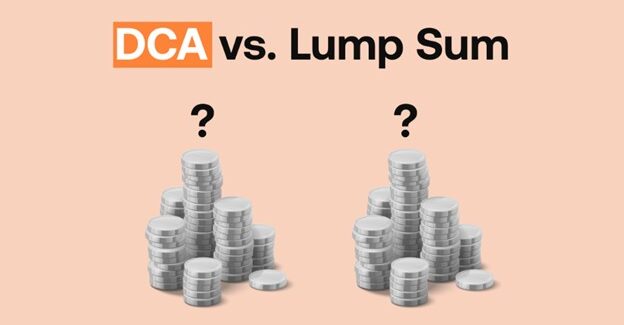When selling Bitcoin or other cryptocurrencies, you are required to pay capital gains taxes on any profit you make, regardless of whether you made a single trade or a hundred. Your tax liability can quickly accumulate. However, by investing a little time in planning before the end of the year, you can reduce the amount you pay in taxes and keep more of your Bitcoin profits.
Crypto and Bitcoin Taxes Explained
The IRS considers Bitcoin and other cryptocurrencies as property for tax purposes. Similar to stocks and bonds, taxes must be paid when you sell, exchange or trade cryptocurrencies for a profit. Using cryptocurrencies or Bitcoin to pay for services is considered an exchange. If the value of the service received exceeds the initial payment made in cryptocurrencies, you may be taxed on the difference.
Understanding How Bitcoin is Taxed
The taxes payable on Bitcoin profits are based on your annual income and how long you have held the cryptocurrencies. The tax bracket that you fall under depends on your income level. Therefore, the more money you make annually, the higher your tax bracket and the greater the taxes you will be required to pay.
The amount of tax payable on Bitcoin profits is also influenced by the length of time you have owned the cryptocurrencies. If you have held the cryptocurrencies for over a year before selling, trading, or exchanging them, you will be required to pay long-term capital gains tax rates. However, if you sell, exchange, or trade Bitcoin that you have held for less than one year, you will be required to pay short-term capital gains tax rates.
Long-term capital gains tax rates vary from 0% to 20%, depending on your annual income. Short-term capital gain tax rates are the same as ordinary income rates, which range from 10% to 37% based on your income and filing status. You will pay higher taxes if you sell Bitcoin that you have held for less than one year.
Ways to Avoid Capital Gains Tax on Cryptocurrency
By implementing several tax strategies, you can learn how to avoid capital gains taxes on cryptocurrency. Read on to discover how to reduce taxes on Bitcoin.
Invest in a Crypto IRA
Investing in a self directed crypto individual retirement account (IRA) comes with significant tax benefits. Your contributions can be invested in digital and other alternative assets. Taxes on any gains from buying and selling assets through your crypto IRA are deferred until you take retirement distributions.
With a Traditional crypto IRA, any contributions you make are pre-tax and are tax-deductible up to the IRS allowable amount. Once you retire, any distributions you take will be taxable. However, you may pay less tax if you expect to be in a lower tax bracket upon retirement.
If you open a Roth crypto IRA, you cannot take a deduction for your contributions now. However, you likely will not pay taxes on your retirement distributions in the future. This is because contributions to a Roth crypto IRA are made after being taxed.
According to the IRS, the 2023 contribution limits are up to $6,500 to your IRA if you are under 50. If you are 50 or older, the IRS allows you to contribute up to $7,500 to your IRA.
Use Tax Deductions
If you find yourself in a higher tax bracket than desired, it is time to scour the tax code for deductions to lower your taxable income. If you itemize your deductions, you can increase your charitable donations to reduce your income. Alternatively, this may be the year to undergo an expensive medical procedure if you can write off some of the costs. If you own your home, you could also get a tax break if you invest in specific energy-efficient improvements.
Holding for the Long Term
The tax rate you pay when selling, trading, or exchanging crypto is based on how long you have owned it. When you sell Bitcoin that you have owned for at least a year, the tax on the profit is based on long-term capital gains tax rates. However, if you own crypto for less than a year and sell it, you’ll be hit with higher short-term capital gains tax rates. Since long-term rates are lower than short-term rates, you will pay less tax on Bitcoin profits if you can hold them for at least one year before selling.
Offsetting Your Gains with Capital Losses
If you have low-performing investments in your portfolio, consider selling them to realize a capital loss. You can reduce your profit by offsetting these capital losses against your crypto capital gains. With a lower profit, you’ll pay less in capital gains taxes. However, timing is essential when offsetting capital gains and losses. Any long-term capital losses must first offset against long-term capital gains. If you still have some long-term capital losses, you can offset these against short-term capital gains.
Changing Your Residency
Many states base their income tax on the money you earn. If you can move to a state with no or low income tax rates, you can keep more of your Bitcoin profit. If you have always wanted to live in a state with a warmer climate, like Florida or Texas, now may be the time to make your move.
Selling at a Lower Tax Bracket
The amount of taxes you pay is based on how much money you make. If your income drops enough, you may be in a lower tax bracket. Whether you are going back to school, taking some time off, or have less money coming in, you can pay less tax if you sell high-performing investments in a year where your taxable income is lower. Not only can you save tax money, but if your income is low enough, you could avoid crypto tax altogether.
Strategies to Reduce Taxes on Bitcoin Profit
The IRS treats digital assets like property. You can easily find yourself with a hefty tax bill as you sell, exchange, or trade crypto during the year. However, there are ways to lower your income and reduce your tax liability. By putting a few strategies in place, you can learn how to reduce taxes on crypto and keep more of your Bitcoin profits.
Frequently Asked Questions
Q: How can I realize crypto profits without incurring tax liabilities?
A: By reducing your taxable income, you may be able to realize crypto profits without having to pay taxes.
Q: Will I be taxed on my cryptocurrency investments if I reinvest them?
A: Yes, any profit made from the sale of crypto to reinvest will be subject to taxes.
Q: What are the consequences of not reporting cryptocurrency on taxes?
A: While reporting purchased crypto on your tax return is not mandatory, failure to report and pay taxes on crypto profits from sales can result in IRS penalties and interest charges.









 3,500+ 5-Star Reviews
3,500+ 5-Star Reviews